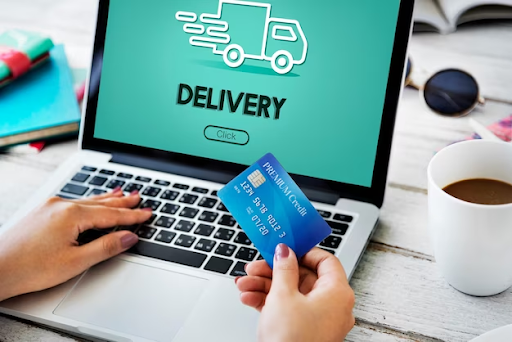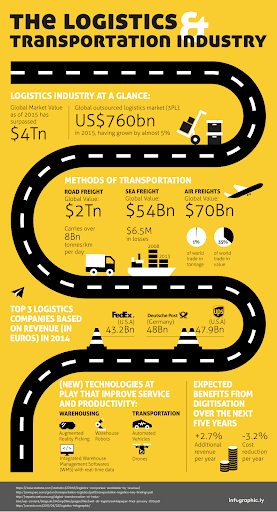
The e-commerce landscape has exploded in recent years, transforming the way we shop and challenging package delivery companies to keep up with the relentless pace. Global e-commerce sales were expected to soar to $4.9 trillion in 2021, according to Statista. This rapid growth has given rise to cutting-edge innovations like AI-based parcel tracking tools—designed to meet the increasing demands of consumers.
Source : Statista
In this blog post, we’ll take you on an exciting journey through the dynamic, creative strategies package delivery companies are employing to thrive in the ever-changing world of online shopping. From embracing automation and robotics to championing eco-friendly practices and harnessing the power of data analytics, discover how these companies are shaping the future of package delivery, making it more efficient, seamless, and enjoyable for everyone involved.
Riding the Automation and Robotics Wave
 Package delivery companies are increasingly integrating automation and robotics into their processes to streamline operations and improve efficiency. For example, Amazon’s Prime Air drone delivery service has the potential to revolutionize the delivery industry by reducing both delivery time and operational costs. Similarly, Starship Technologies has developed sidewalk robots to facilitate local deliveries, demonstrating the potential for robotics in the logistics sector. Additionally, mainstream courier companies like UPS and FedEx are experimenting with autonomous delivery vehicles to enhance last-mile delivery efficiency.
Package delivery companies are increasingly integrating automation and robotics into their processes to streamline operations and improve efficiency. For example, Amazon’s Prime Air drone delivery service has the potential to revolutionize the delivery industry by reducing both delivery time and operational costs. Similarly, Starship Technologies has developed sidewalk robots to facilitate local deliveries, demonstrating the potential for robotics in the logistics sector. Additionally, mainstream courier companies like UPS and FedEx are experimenting with autonomous delivery vehicles to enhance last-mile delivery efficiency.
Championing Eco-Friendly and Sustainable Practices
Delivery companies are focusing on sustainability and carbon emission reduction to address growing concerns about climate change. UPS has introduced a fleet of electric delivery vans to minimize its carbon footprint and aims to operate 25% of its fleet using alternative fuels by 2025. DHL is committed to its “Mission 2050: Zero Emissions” goal, focusing on eco-friendly packaging innovations and investing in renewable energy to reduce waste and promote recycling. Such efforts contribute to global initiatives like the Global Green Logistics program, targeting a significant reduction in greenhouse gas emissions from logistics operations.
Crafting Tailored Customer Experiences through Transparency
E-commerce growth has led to a significant evolution in customer expectations. Companies are leveraging data analytics and AI to deliver personalized customer experiences and improve satisfaction. Real-time tracking and transparent communication have become indispensable for meeting these expectations. Platforms like Ordertracker play a crucial role in providing customers with accurate, up-to-date information about their deliveries, ensuring a seamless shopping experience. Companies are also investing in chatbot technology to provide instant support and resolve customer queries efficiently.
Diversifying Delivery Options for Maximum Convenience
To cater to diverse customer needs, package delivery companies are offering various delivery options. These include same-day delivery, which is highly sought after by customers, especially during the holiday season. Scheduled deliveries allow customers to choose a specific time window for their packages to arrive. Locker pickup points, like Amazon Hub Locker services, enable customers to pick up their packages at a convenient location and time. Strategic partnerships between delivery companies and local retailers help expand delivery networks and offer more options to customers.
Pioneering Future-Ready Supply Chains
Resilient and adaptable supply chains are essential for package delivery companies to stay competitive in the e-commerce landscape. Companies are investing in predictive analytics, AI, and IoT technologies to fortify their supply chains and prepare for future challenges. These technologies enable better demand forecasting by analyzing historical data and identifying trends. They also help improve inventory management and resource allocation, making supply chains more robust and agile. Blockchain technology is also being explored to increase transparency, traceability, and security in the supply chain management process.
Leveraging Big Data and Analytics for Improved Efficiency
Package delivery companies are harnessing big data and analytics to optimize their operations. By analyzing data such as traffic patterns, weather conditions, and delivery addresses, they can achieve route optimization, resulting in reduced delivery times and fuel consumption. Machine learning algorithms help predict and manage fluctuations in demand, leading to better inventory management and resource allocation. Furthermore, data analytics enables companies to identify potential bottlenecks and inefficiencies in their delivery processes, allowing them to make informed decisions and implement effective solutions. In essence, big data and analytics have become indispensable tools for package delivery companies adapting to the e-commerce boom.
| Company | Automation & Robotics | Eco-Friendly Practices | Diverse Delivery Options | Future-Ready Supply Chains |
|---|---|---|---|---|
| Amazon | Prime Air drones, Robotics in warehouses | Frustration-Free Packaging, Renewable energy | Amazon Hub Locker, Same-day delivery | AI, IoT, and Predictive analytics |
| UPS | Autonomous vehicles, Robotics in warehouses | Electric delivery vans, Alternative fuels | Same-day delivery, UPS Access Point locations | AI, IoT, and Predictive analytics |
| FedEx | Robotics in warehouses, Autonomous delivery robots | Sustainable packaging, Fuel-efficient vehicles | Scheduled deliveries, FedEx OnSite |
AI, IoT, and Blockchain technology |
| DHL | Robotics in warehouses, AI-driven automation | Mission 2050: Zero Emissions, Sustainable packaging | Parcel Lockers, On Demand Delivery |
IoT, AI-driven analytics, Predictive analytics |
Conclusion
Package delivery companies are embracing innovative strategies to adapt to the thriving e-commerce landscape. From integrating automation and robotics to championing eco-friendly practices and enhancing customer experiences, these companies are setting new standards in the logistics sector. AI tools further contribute to a seamless online shopping experience, empowering customers with real-time information about their deliveries.
Anyline’s 2022 consumer survey reveals that 96% of customers consider real-time GPS tracking important for their online orders, emphasizing the significance of platforms like Ordertracker in meeting customer expectations. As the e-commerce industry continues to grow, we can expect even more exciting innovations and advancements from package delivery companies. The future of package delivery promises to be exciting, dynamic, and driven by cutting-edge technologies that will shape the way we shop and receive our packages for years to come.
Interesting Related Article: “6 Reasons Why Businesses Should Switch To Biodegradable Packaging“

